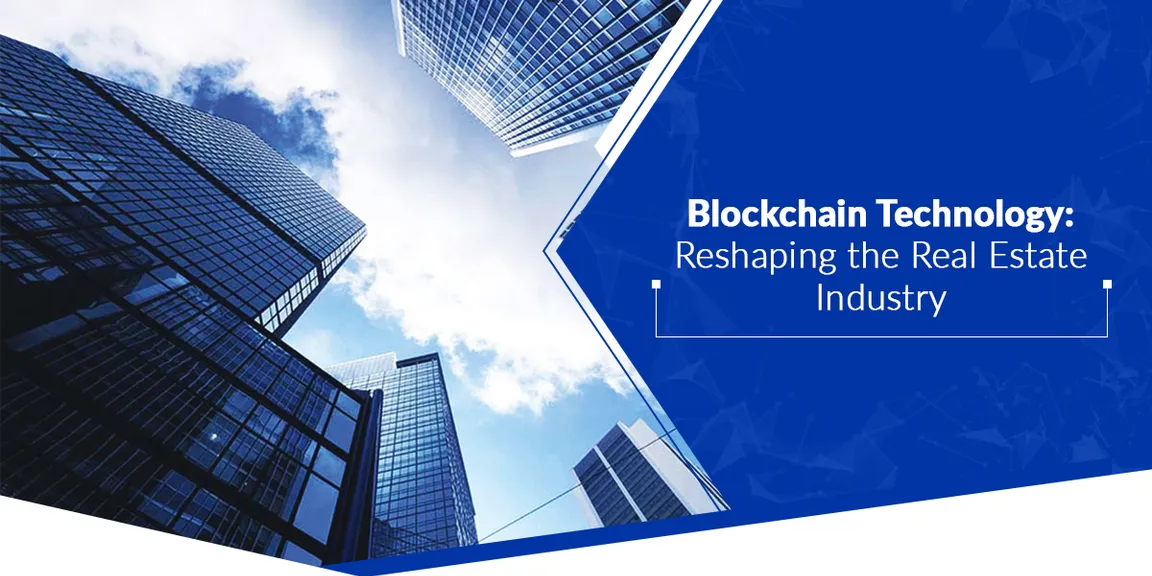

Blockchain Technology: Reshaping the Real Estate Industry
Until now the technology around the real estate sector is mostly concerned with property listing and connecting the potential buyers and sellers. With the emergence of blockchain, the underlying technology in cryptocurrency has made a substantial impact on every sector. Initial Coin Offering (ICO) has changed the startup fundraising, and also challenged the startup loans, dependency on single investors and venture capitalists. In the same way, the real estate sector is set to undergo a significant transformation.
In the existing model, the real estate sector is almost inseparable from fraudulent practices in the pricing of the property, title management, financing and payment systems. B, blockchain technology offers a form of shared record-keeping, which is designed to be difficult to tamper. It operates in a decentralized peer-to-peer network, showing resilience against corrupt and fraudulent practices.
Areas of Benefits
Real Estate Investment:
Investment on any real estate property is always a big thing, it is only accessible to a few and it involves a large sum of money. Additionally, the real estate sector involves just significant stakeholders like fund managers, which further increases the barriers for average investors.
However, blockchain technology is now changing the whole equation of property investment with asset tokenization.
Real estate tokenization is a process of fragmenting the asset into a smaller digital asset. Upon purchasing these tokenized assets, the purchaser holds the share of their property. Now, the security token owner has the option to trade these assets in the secondary market to make profits. It opens the window for average investors and improves liquidity.
The person or entity who sells the tokens can access the information of the owner of the token through blockchain and this information is part of a shared ledger and it is immutable. So, the whole process of investment is more reliable and highly secured.
Property Search Process:
Currently, all the third-party platforms collect and categorize property information listed out by the seller/owner or broker of the property. These platforms have a subscription-based business model that collects fees from the seller to market their property to potential buyers. These fees are mostly high and most importantly, they have access to our information, handing over all the critical details on the hands of a third-party service provider is absurd. Moreover, there is a lack of transparency and poor communication between the platform, which leads to the presence of outdated information.
But, blockchain technology can fix these issues by having a single decentralized ledger. The single decentralized ledger across the peer-to-peer network will authorize the owner to have greater control over the data and buyers can have access to more reliable data at a little cost.
Document Evaluation Process:
We are still using physical paper documents for proof of identity and also understand the details on the agreement between the parties through that. This requires us to commit significant time and effort for due diligence and financial verification.
This kind of practice consumes a lot of time and money. Automating the entire process with smart contracts increases efficiency, enhancing data security, and reducing manual errors all done in a cost-efficient way.
Property Management:
Managing property is highly complex and it depends on the number of stakeholders involved which includes, landlords, property managers, tenants and vendors. Property management among stakeholders involves legally binding paperwork, not just verbal acceptance.
Going through the details of the agreement paper consumes a lot of time and energy, not just that, there is a possibility of human errors.
Through the use of smart contracts, it is easy to recognize and verify the details of both tenants and property in case of the rent agreement.
Most importantly, these details are immutable, so it gives immunity against any fraudulent practices by either party and zero involvement of the third party.
CONCLUSION:
With the rising presence of cryptocurrency in the real estate market, providing solutions to the existing problems in this sector would make cryptos more real to the consumers. Still, there is a long way to go in terms of blockchain technology to attain maturity and become accessible to the common man. Yet, it is clear that blockchain is a way to the future.




